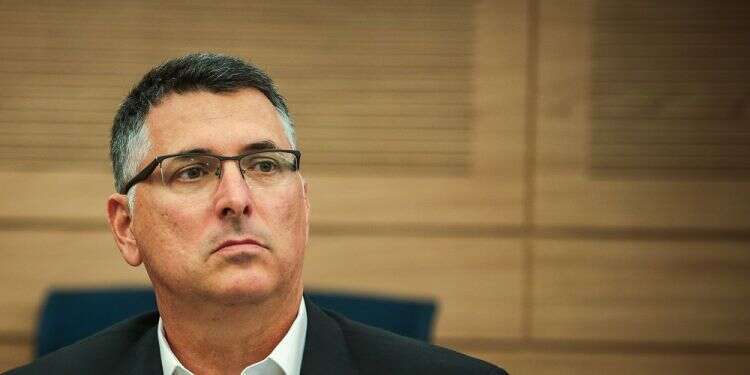The indictment Prime Minister Benjamin Netanyahu is facing is expected to sharpen the battle lines in Israel's already deadlocked political system and could test the loyalty of his right-wing allies, Israeli commentators said over the weekend.
The serious corruption charges announced Thursday appear to have dashed already slim hopes for a national unity government following September's elections, paving the way for an unprecedented repeat vote in March, which will be the third in less than a year.
Follow Israel Hayom on Facebook and Twitter
His main opponent, Blue and White leader Benny Gantz, called on him to "resign immediately" from all his cabinet posts, citing a High Court of Justice ruling that says indicted ministers cannot continue to hold office. Netanyahu also serves as minister of health, labor, and Diaspora affairs, as well as acting agriculture minister.
While Netanyahu is not legally required to step down as prime minister until such time as the case is adjudicated, it is unclear whether an indicted politician could be given the mandate to form a new government.
Likud MK Gideon Sa'ar has already called for party primary to be held ahead of any future elections, saying that he plans to vie for Likud's leadership.
Speaking with Channel 12's "Meet the Press," Sa'ar said that Netanyahu "will not succeed in forming a government if we hold a third, fourth, or fifth round of elections. We can't talk about the attorney general's decision as if it were a coup. It's not an attempted coup, it's irresponsible to say that," he said, referring to a term Netanyahu used in a speech in which he denounced the AG's decision.
Responding to Sa'ar's comments, a source close to Netanyahu said, "The chairman of the Likud Party is Prime Minister Netanyahu. It's sad to see that while PM Netanyahu works to retain the Likud's power, Gideon Sa'ar, as usual, shows zero loyalty and tries to undermine him."
Likud MK Nir Barkat, for his part, suggested the party form a new role – "deputy Likud chairman."
Netanyahu has no second in command as Likud chairman and the creation of this role may be able to achieve two immediate things: It will allow challenger Blue and White to team with Likud and form a national unity government – something the party said it will not do as long as Netanyahu serves as Likud's leader, and it will also create a mechanism by which Likud members will not try to forcibly remove Netanyahu from his role.
New Right co-founder Naftali Bennett, for his part, said over the weekend that he plans to reintroduce the idea of direct elections for the position of the prime minister, so as to avoid calling a third vote in the span of one year.
Shas leader Aryeh Deri also supports this idea, which seems to be gaining traction among the members of the right-wing bloc.
Sources familiar with the issue told Israel Hayom that Labor leader Amir Peretz and Democratic Union head Nitzan Horowitz are not keen on the idea, but Bennett believes that lawmakers might back it regardless of their political affiliation, so as to avoid another election.
Gantz on Saturday again proposed to lead a unity government for the first two years and then Netanyahu would lead the following two years – if he is acquitted of corruption charges.
Netanyahu has repeatedly rejected this notion.
Gantz insists it is the "only way to avoid unnecessary elections that no one wants."
Also over the weekend, Hamas in Gaza commented on Netanyahu's legal troubles.
Hamas leader Ismail Haniyeh told reporters in Rafah that the serious corruption charges against the Israeli prime minister were a sign "of more steadfastness" for the Palestinians.
"The indictment means more resistance, both popular and armed," he said, without elaborating.




